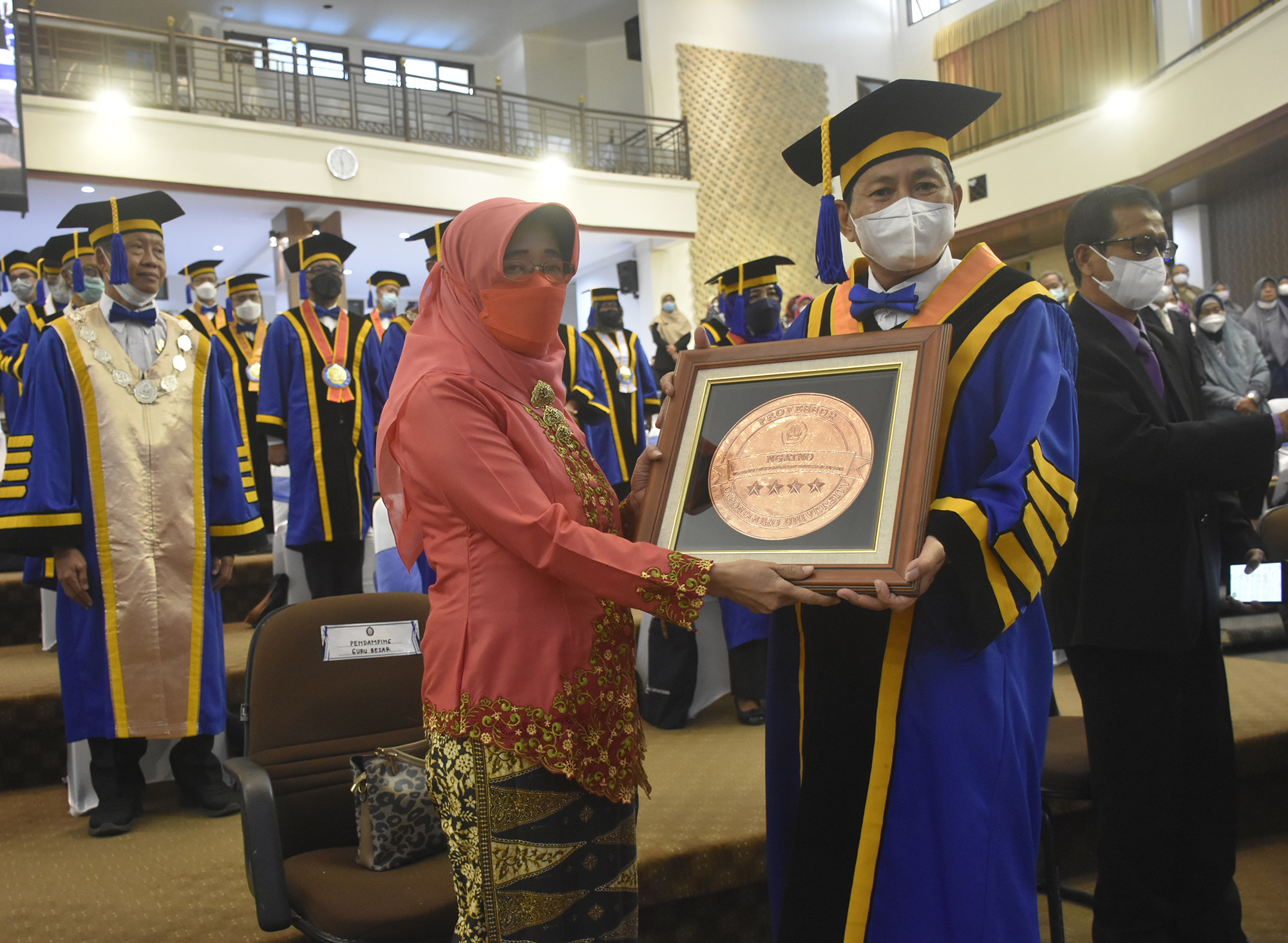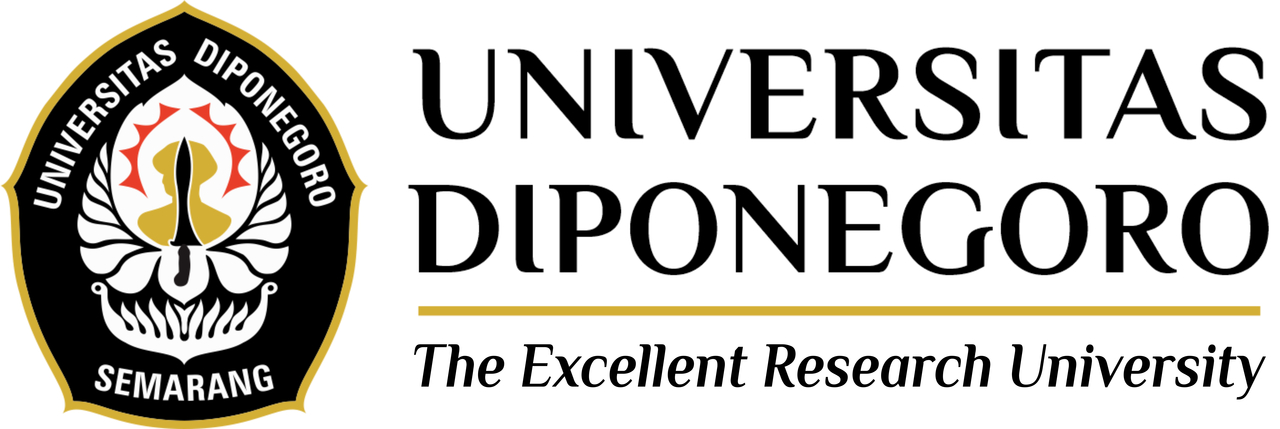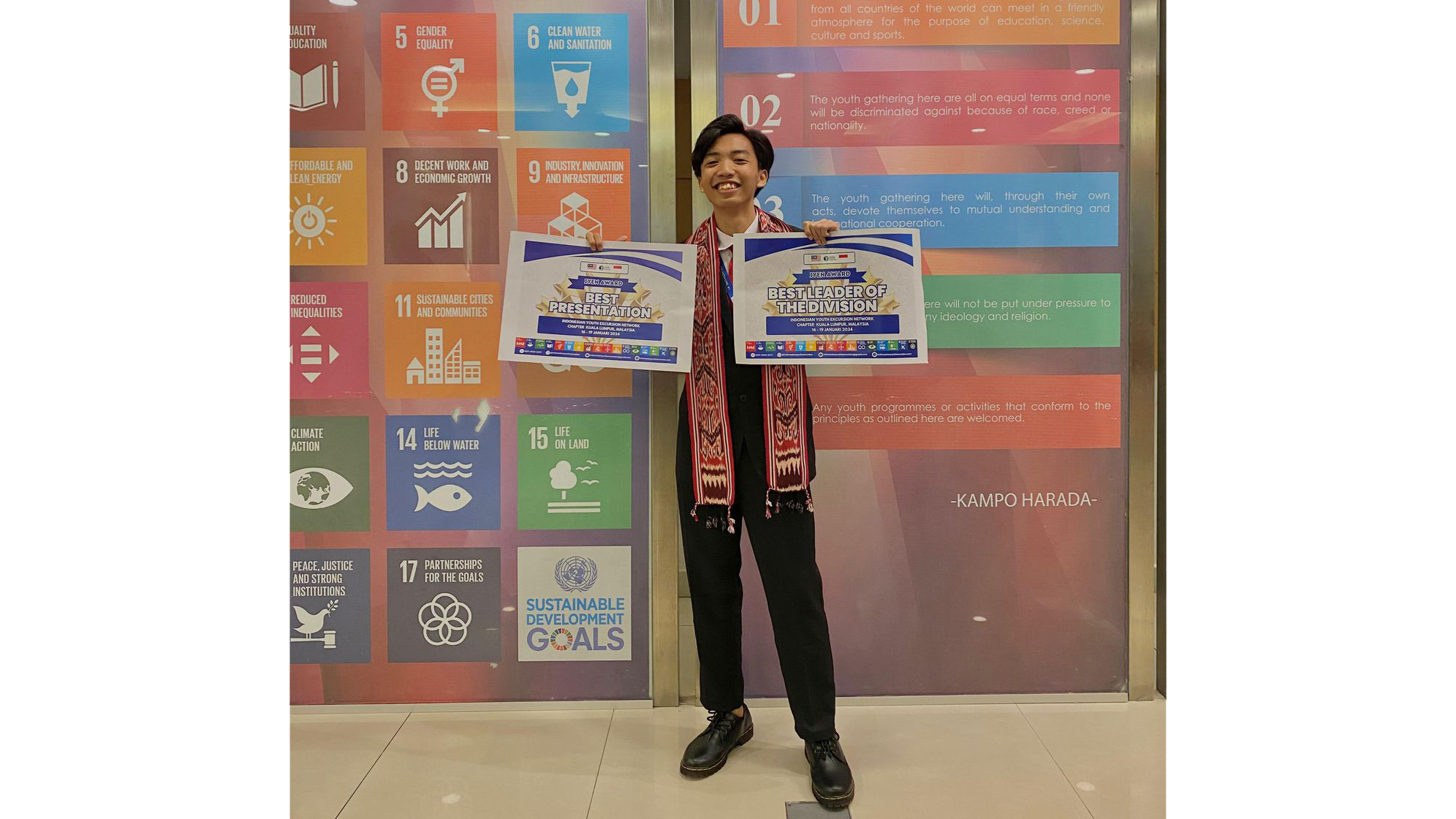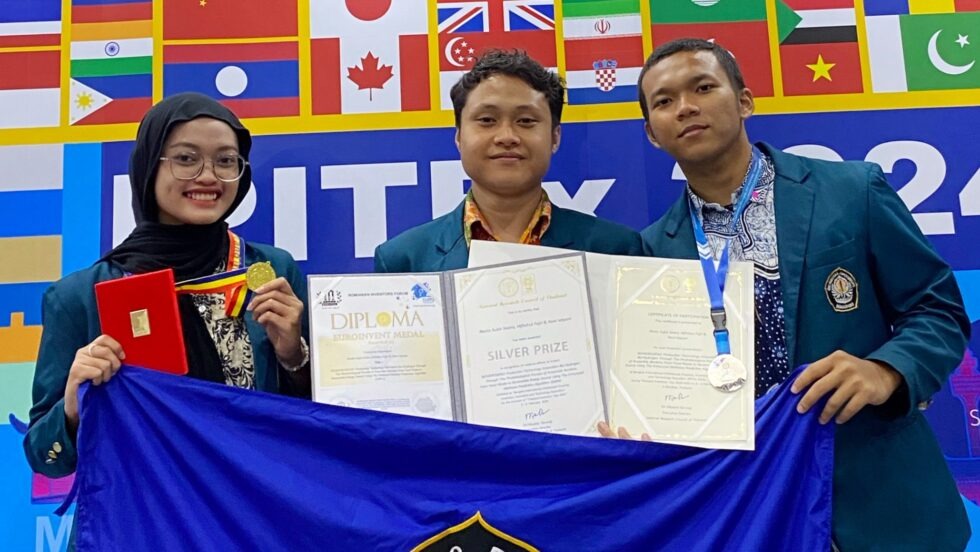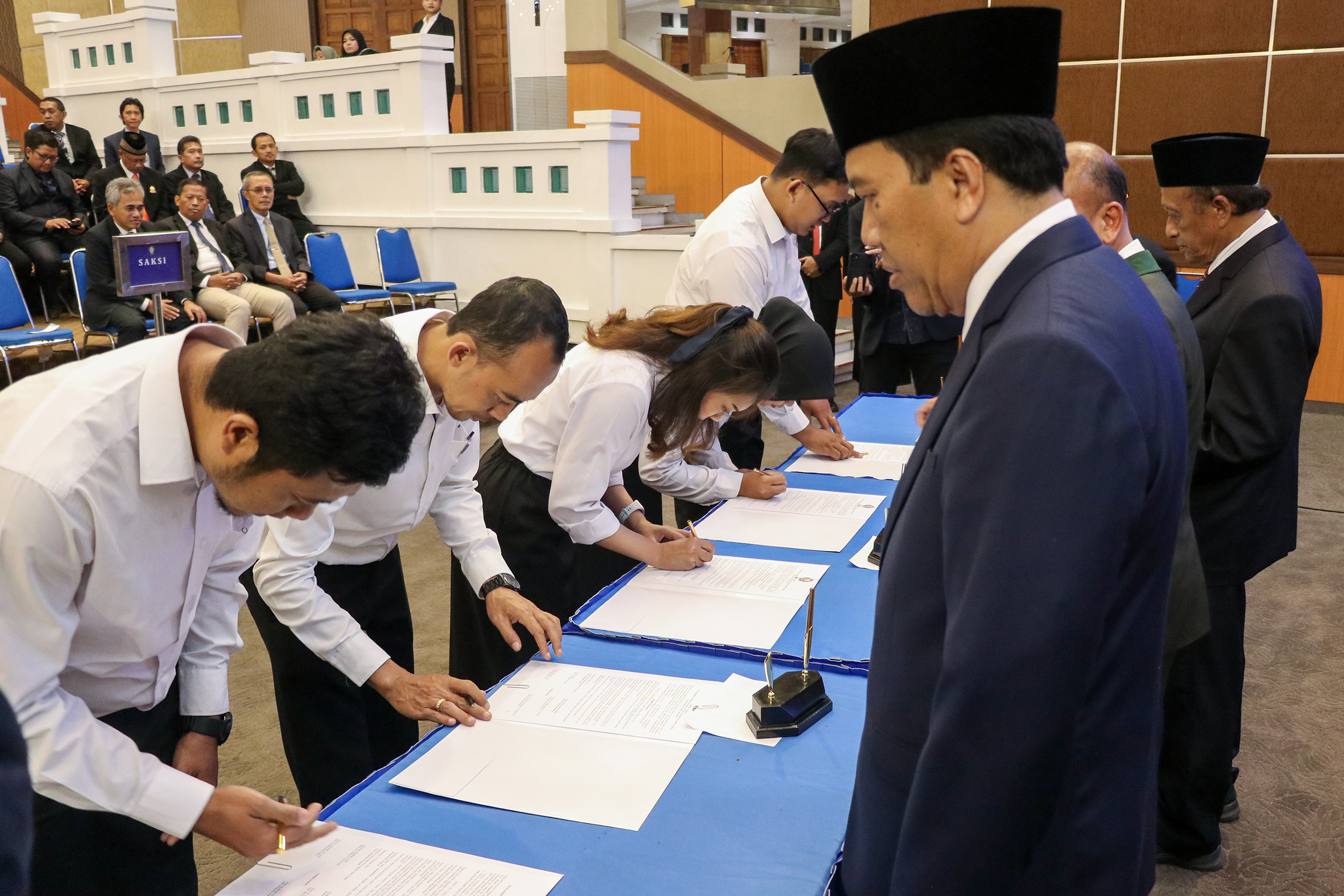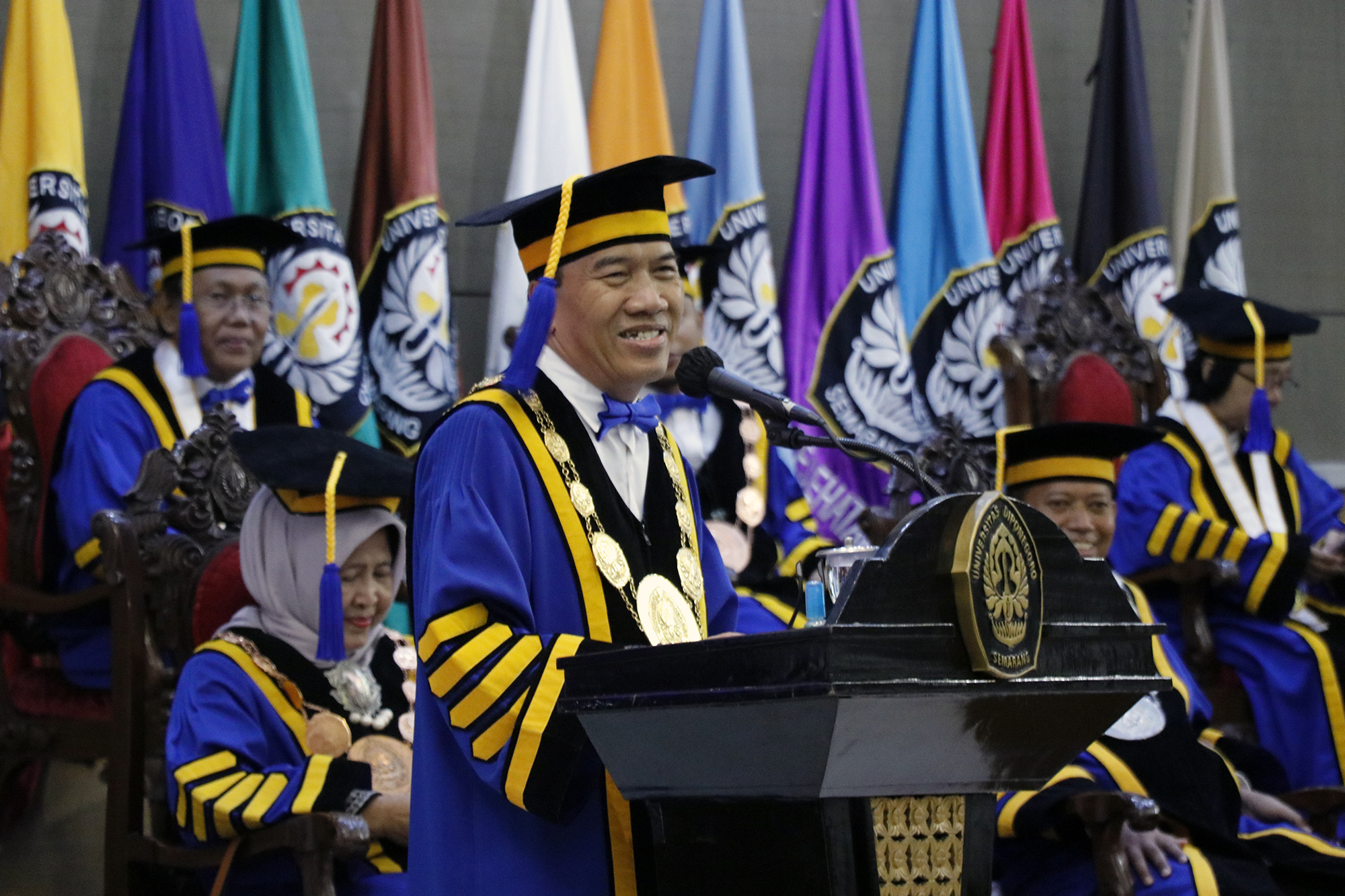Lecturer of the Faculty of Social Science and Political Science (FISIP) Diponegoro University (Undip), Prof. Dr. Drs. Ngatno, M.M. was officially inaugurated as Undip Professor on Wednesday (28/9). Located in the Prof. Soedarto SH Building, Undip Tembalang campus, Prof. Ngatno explained his scientific writing entitled “Marketing Orientation Model Towards Digitalization of MSMEs Marketing in Indonesia”.
Considering the fact that the impact of the pandemic is quite significant on the decline in the turnover of MSMEs in Indonesia, Prof. Ngatno researched the implementation of marketing orientation on MSMEs using various approaches and research objects, as well as their impact on MSMEs performances (both in exports, employment, and in their contribution to GDP).
Based on data from the Ministry of Cooperatives and Small and Medium Enterprises (Kemenkop UKM) in 2021, the number of MSMEs in Indonesia has reached 64.2 million, which contributes to Gross Domestic Product (GDP) of 61.07% and contributes to employment reaching 97 % of the total national labor absorption. However, when the Covid-19 pandemic swept across the world, 50% of MSMEs in Indonesia closed their businesses, 88% of MSMEs ran out of funds, and 60% of MSMEs reduced their workforce.
Thus, it is necessary to have an influential marketing orientation to revive the performance of MSMEs in Indonesia. Marketing orientation is a measure of behavior and activity that reflects the implementation of the marketing concept. While the marketing concept states that to achieve the purpose of exchange is determined by efficiency through a thorough understanding of the needs and wants of consumers. Marketing orientation emerged in the 1990s, and in early 2005 entering the era of replication, the concept of marketing orientation has been updated by adding a proactive marketing orientation dimension to complement the existing marketing orientation concept.
Then in the 2010s entering the digital era, the concept of digital marketing resulted in a digital marketing orientation that combines two aspects of a philosophical dimension, namely an emphasis on digital marketing and a behavioral dimension which is an activity that leads to involvement in digital marketing. Digital marketing orientation has become a new paradigm in the field of marketing studies, whose implementation has an important role in improving the performance of MSMEs.
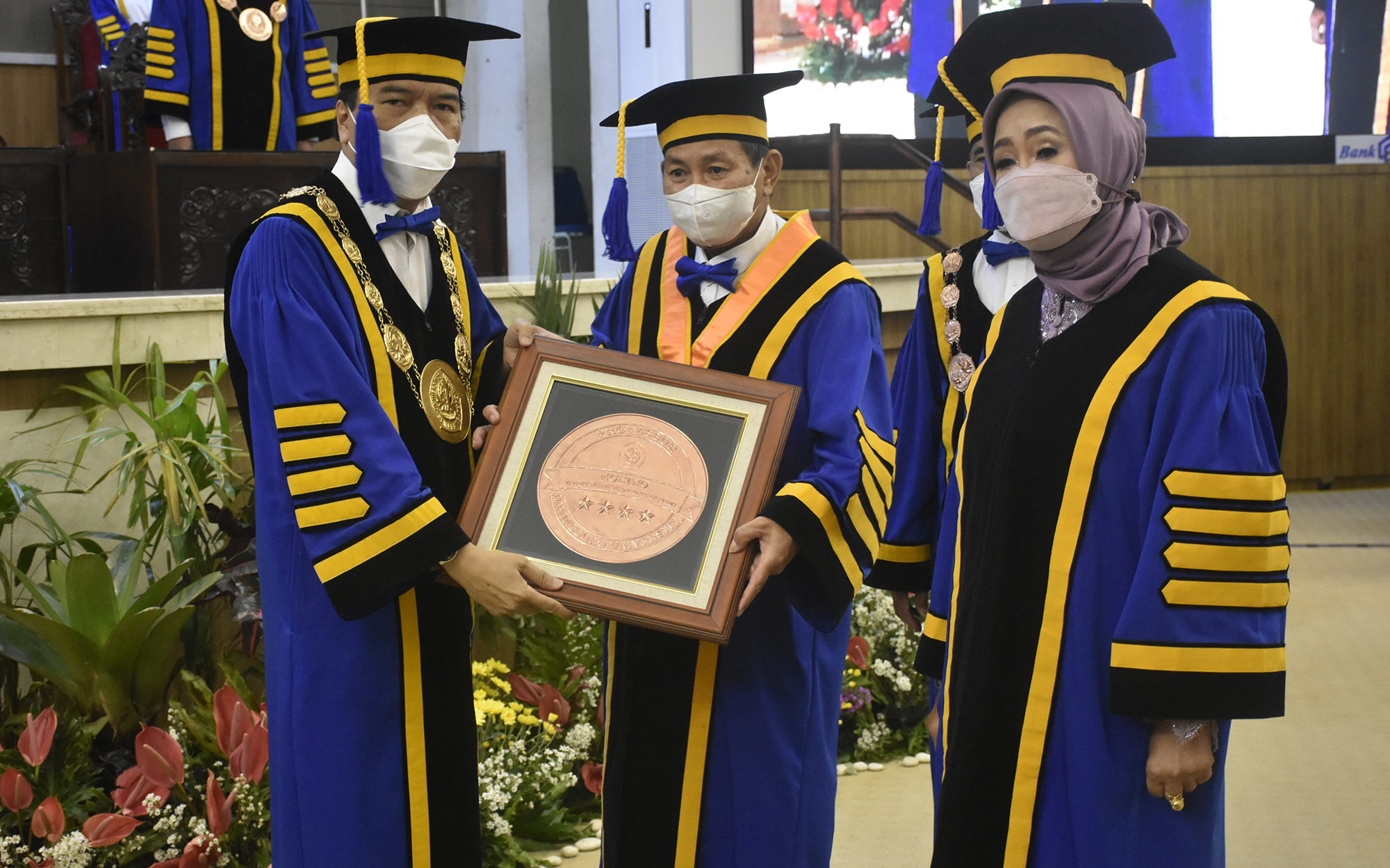
The lecturer who once served as Deputy Dean 2 of FISIP Undip for the 2015-2019 period explained four marketing orientation models. The first model shows that marketing orientation can increase sales turnover, either directly or indirectly through competitive advantage. In the second model, responsive marketing orientation is able to improve MSMEs performances through incremental innovation. In contrast to responsive marketing orientation, proactive marketing orientation improves performance through radical innovation. Then the third model shows that the relationship between marketing orientation will be stronger if the level of competition is relatively low and the size of the company is larger.
“Finally we offer a fourth model, where digital marketing orientation can be measured from management beliefs, initiation, and implementation activities. Some of the antecedent factors include the perception of complexity, the perception of convenience, the perception of suitability and as a consequence is marketing performance,” said Prof. Ngatno.
Furthermore, it can be concluded that the degree of marketing orientation with dimensions of responsive marketing orientation, proactive marketing orientation, and digital marketing orientation can improve MSMEs performances. A high degree of marketing orientation will encourage innovation and competitive advantage which in turn can improve the performance of MSMEs. With the increasing performance of MSMEs, it is hoped that the contribution of MSMEs to the state in employment, contribution to GDP and role in the export sector can be greater.
Therefore, Prof. Ngatno advised MSMEs actors in Indonesia to continue to innovate and improve competitive advantage, so that the performance of their MSMEs becomes more productive and becomes profitable. “For the first MSMEs players, continue to improve marketing orientation by digging up information on current customer needs and customer needs in the future. Next, continue to review the activities of competitors and observe the possibility of new competitors,” said the lecturer who has received the 20 Years Satya Lencana Karya Sapta award from the President of the Republic of Indonesia. (Titis – Public Relations)
